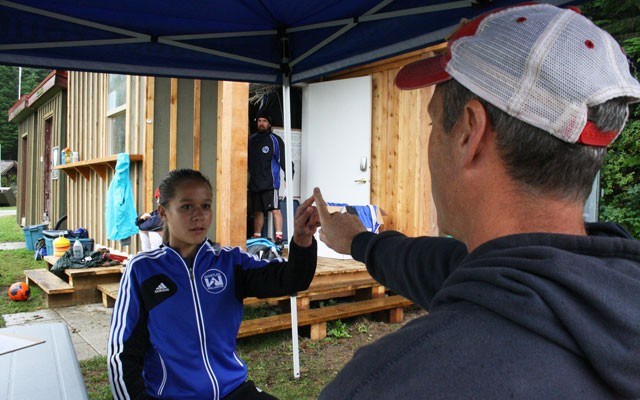Pat Johnston is no stranger to concussions.
In 2007, the Whistler father-of-three took a spill off of his mountain bike that resulted in what he calls a "fairly significant concussion."
But in a place like Whistler, Johnston's situation is not unique.
"Concussion in Whistler is an epidemic. It is awful," Johnston said.
"Whether it's the bike park, or the ski hill or local sports, it's just incredible."
Through his own experiences, Johnston realized that the tools to measure one's progress on the road to concussion recovery were lacking.
"That was one of the biggest problems we had — once we were out of the medical system... there was no one to sort of say, 'now it's month 12 or month 14, where am I now in terms of my progress?'" Johnston said.
"(That was something) I became very passionate about, was how to measure someone's progress."
It was that passion that lead Johnston to get trained to administer the Sideline Concussion Assessment Tool (SCAT) — a comprehensive test that provides insight into an athlete's responses before and after concussion.
By administering the test before a concussion occurs, a "baseline" can be created to which physicians can refer should an athlete suffer a concussion.
"That's always been the big gap, is that there just hasn't been a great way to look at the symptoms someone has after concussion and say well, 'were these present before the accident or were they a result of the concussion?'" Johnston said.
"And so for the first time, at least in Whistler, the doctors have an opportunity to use this information for the kids sports programs."
Johnston began baseline-testing members of the Whistler Youth Soccer Club last week. "I'm hoping to have the whole of Whistler soccer tested by November, and then if Whistler Minor Hockey is interested we'll try to get some people out and test them as well," he said.
The test involves two components: A cognitive component that tests short and long-term memory, problem solving and executive functions, and a physical component that tests things like balance and hand-eye-coordination.
While soccer isn't the most concussion-heavy of sports, the idea is to try and be proactive, said P.J. O'Heany, president of the Whistler Youth Soccer Club.
"I don't know if we've ever had one reported case, but we have had a few athletes (who had) to stop soccer (due to)injuries from other things like biking or skiing," O'Heany said.
"It hasn't happened on our pitches, but we certainly want to try and get ahead of that curve and be proactive."
O'Heany thinks the testing will prove beneficial in the long term, and would like to see it spread across all minor sports in Whistler.
"No matter whether they're a skier or a hockey player or a soccer player, if they had a baseline to work from, then it would give the medical staff and the parents a lot more data to work with to be able to work out how much damage you've (got from) a head injury," he said.
"It's just not something that you can see."




